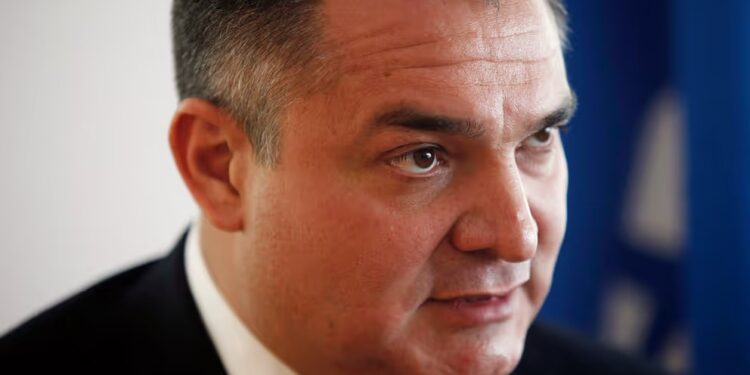A Florida court has dealt a staggering blow to Genaro Garcia Luna, Mexico’s former public security minister, ordering him and his wife to repay £23 billion to the Mexican government for accepting bribes from the notorious Sinaloa drug cartel. The ruling, announced on 22 May 2025, marks a historic moment in Mexico’s fight against corruption, targeting a man once celebrated as a “supercop” for his aggressive stance against drug trafficking. Instead, evidence revealed Garcia Luna facilitated the cartel’s operations, betraying his nation for personal gain.
Garcia Luna, who served as Mexico’s secretary of public security from 2006 to 2012, was convicted in a U.S. court in 2023 for drug trafficking and corruption. Prosecutors detailed how he accepted millions in bribes, delivered in suitcases and duffel bags, to ensure the Sinaloa cartel—led by Joaquin “El Chapo” Guzman—could operate with impunity. The cartel received safe passage for drug shipments, intelligence on rival gangs, and protection from law enforcement. Testimony from former cartel members described cash handoffs in secretive locations, including a car wash and a restaurant opposite the U.S. Embassy in Mexico City. One witness claimed Garcia Luna was paid at least £4.8 million personally, with the cartel pooling up to £40 million for his protection.
The Mexican government sued Garcia Luna and his wife, Linda Cristina Pereyra, alleging their family’s business conglomerate illicitly secured 30 public contracts worth over £600 million. These funds were funnelled through tax havens and used to purchase properties in Florida, masking their corrupt origins. The court’s ruling, which demands Garcia Luna pay £600 million and Pereyra £1.4 billion, is triple the amount Mexico initially sought, reflecting the scale of their illicit gains. Garcia Luna, now serving a 38-year sentence in a U.S. prison, faces a fine that dwarfs his reported wealth, underscoring the court’s intent to deter future corruption.
This case has sent shockwaves through Mexico, where public trust in institutions has long been eroded by systemic graft. President Andres Manuel Lopez Obrador hailed the ruling as a step towards justice, though he cautioned that recovering the funds would be challenging. The verdict has also reignited debates about the complicity of high-ranking officials in the drug trade, with Garcia Luna’s case exposing a 12-year period of corruption at the heart of Mexico’s security apparatus. Former president Felipe Calderon, under whom Garcia Luna served, expressed shock at the allegations, insisting he was unaware of his minister’s actions.
Critics argue the ruling, while symbolic, may do little to dismantle the broader nexus of cartels and corrupt officials. Mexico’s struggle with drug-related violence continues, with over 30,000 homicides reported annually. The case also raises questions about international cooperation, as Garcia Luna’s arrest in Texas and trial in New York highlight the U.S.’s role in pursuing justice across borders. For now, the £23 billion judgement stands as a bold statement against impunity, even if the path to restitution remains uncertain. As Mexico grapples with its past, the world watches to see if this landmark ruling will spark meaningful reform.
newshub finance




Recent Comments